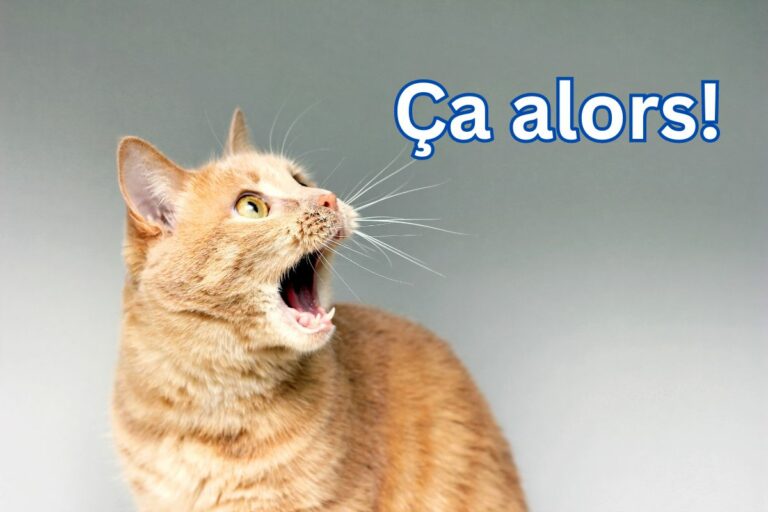How to Say “Have a Nice Day” in French (with audio clips)
In this article, we discuss what native French speakers say when leaving to wish someone a good day - or some other moment in time : afternoon, evening, week, month, year, holiday, event etc.
As always, there are various phrases you can use depending on the time of day, time of year, or event. Each phrase also can take on numerous variations that you can choose from. Which one you pick depends in turn on how formal or informal you want to be, and how much emphasis you want to convey.
Let's start with the basics : wishing someone a nice day as we leave.
Have a nice day in French
There are a few ways to say "have a nice day" in French.
The closest to English is : "Passe une bonne journée" (note : you cannot say "passe un bon jour", a mistake many beginners tend to make).
Example :
"Bon, j'y vais, merci pour le café ! A plus tard, passe une bonne journée !" (OK I'm leaving, thanks for coffee ! See you later, have a nice day !)
"Merci, bonne journée à toi aussi !"
In the last sentence, we use "bonne journée !", a shorter version of "passe une bonne journée" that's also very commonly used for "have a nice day" in French :
"Au revoir madame, bonne journée !" (good bye ma'am, have a nice day)
"Au revoir monsieur, merci, bonne journée à vous aussi." (good bye sir, thanks, have a nice day too)
Looking at these examples, you can tell "have a nice day" is used when leaving, i.e. for good-bye, not for hello.
For example, you may NOT say "Bonjour, bonne journée !" If you do, the person you say it to will be puzzled and confused. It's like saying "Hello, good bye".
In a more formal context, you can say "j'espère que vous passerez une bonne journée", for example when talking to a customer. This literally translates to "I hope you have a nice day".
Another slightly formal version is "je te souhaite une bonne journée" or "je vous souhaite une bonne journée". Here you're literally wishing the person a good day (I wish you a nice day).
If you want to be very friendly and pleasant, you can further emphasize what you say by adding "très" :
"passe / passez une très bonne journée !" : have a great day
"Très bonne journée !" : same meaning
"J'espère que vous passerez une très bonne journée !" : I hope you have a great day !
Variation: have a nice afternoon
If it's after mid-day, before ending a conversation in French you typically say "have a good afternoon" instead of "have a nice day" :
"Passez une bonne après-midi !"
Or simply : "Bon après-midi !"
Note that "après-midi" can be considered either masculine or feminine : "un après-midi" and "une après-midi" are both acceptable. So we can write either "bon après-midi" or "bonne après-midi".
Here's an example dialogue :
"Bon, on part jouer au foot. A plus tard !"
"D'accord, bon après-midi ! amusez-vous bien."
Note that, in colloquial, spoken French, native speakers sometimes say "bon aprem !".
As you've probably guessed, "aprem" is shortcut for "après-midi" - French speakers have a strong habit of shortening every word they can : la fac, perso, pro, la rando, l'expo, la prépa etc.
You can also use the semi-formal structures we saw above when discussing "bon après-midi" :
"J'espère que tu passeras une bonne après-midi"
"Je vous souhaite une bonne après-midi"
Variation: have a nice evening
This phrase is typically used starting late afternoon, and until after dinner time (after that it's "night" time). Where you would say "have a nice day" in the morning, you can say :
"Passe / passez une bonne soirée !" : have a nice evening
Or, the short version : "bonne soirée !"
Example dialogue :
"Il est 18h, je m'en vais. Je finirai le travail demain."
"OK, passe une bonne soirée !"
"Merci, bonne soirée à toi. A demain."
Just like "have a nice day", in a more formal setting, you can extend the phrase with "j'espère" or "je te/vous souhaite":
"J'espère que vous passerez une bonne soirée" : I hope you'll have a good evening.
"Je te souhaite une bonne soirée !" : I wish you a nice evening.
Variation: have a good night
When you are ready to call it a day and to leave the place you're at, you typically say "bonne nuit !"
Some native speakers also pronounce it like this :
"bonne nuit" is generally associated with the act of sleeping. Suppose you had people over for dinner and it's quite late. They're about to leave your house to go to a club downtown. In this case, you don't usually say "bonne nuit" since they're not about to go to sleep. Instead you may say "bonne soirée" even though it's late.
The same variations as for "have a nice day" can be used for "bonne nuit" :
"Passe / passez une bonne nuit !" : have a good night
"Je vous souhaite une bonne nuit !" : I wish you a good night
Example :
"Merci pour cette soirée très sympa ! Bonne nuit !"
"Merci à vous ! Bonne nuit, à demain !"
Variation: have a nice week
Besides the different times of the day, the French phrases we've seen so far can also be applied to other moments and events. Remember, you say these phrases when you're about to leave the person you're speaking with, to say good bye.
Here's a common one that you can use when parting away from a person you won't be seing for a week :
"Passez une bonne semaine !" or "bonne semaine !": have a nice week
You can use them for specific periods of time and events, such as vacations. Here are some examples using the same structure as with "have a nice day" previously :
"Passez de bonnes vacances !" or "bonnes vacances !" : have a nice vacation
"Passez un bon séjour !", "bon séjour !", "nous vous souhaitons un bon séjour" : have a nice stay, we wish you a nice stay . Note that all the variants, including those with "souhaiter" and "espérer", apply to the above examples as well.
More generally, in French you can use these phrases for all kinds of moments :
"Bon cinéma !" : have a good movie
"Bonne visite !" : have a nice visit
"Passez une bonne fête !" : have a good party
"je vous souhaite un bon Noël" : I wish you a nice Christmas
"J'espère que vous passerez une bonne fin d'année" : hope you have a nice year end
"Passez une bonne cérémonie !" : have a nice ceremony
Let's wrap up with a little quiz
To conclude this discussion about how to say "have a nice day" and other related good-bye phrases in French, let's see if you really got the hang of it.
Try to fill in the blanks in the short dialogues below, and write your answers in the comments at the bottom of this article. There are several possible answers for each, just pick one you think is appropriate. Here you go :
1) Chérie, je sors, salut à ce soir !
Conduis prudemment ! __________
2) Je pars aux Antilles pour une semaine à partir de mardi prochain !
C'est génial ça ! __________
3) Je serai chez les voisins de 17h à 18h, ils font un petit apéro pour leur arrivée.
C'est sympa ça ! ___________
4) Nous allons visiter le musée demain, il y a une belle expo de Modigliani.
Très intéressant, dommage que je ne puisse pas venir. _____________
That's all ! Have a nice one ! (not really translatable into French, the closest is probably "bon courage !")








I used the phrase je vous souhaite une bonne journée, and it always gets a good reaction.
Hello Susana, je t’ai envoyé la correction en messsage privé, pour ne pas révéler encore les bonnes réponses à ceux qui veulent faire le quiz 🙂
1-bonne soirée
2-je te souhaite une bonne semaine
3-passez um bon sejour
4-bonne visite